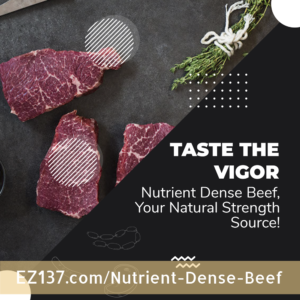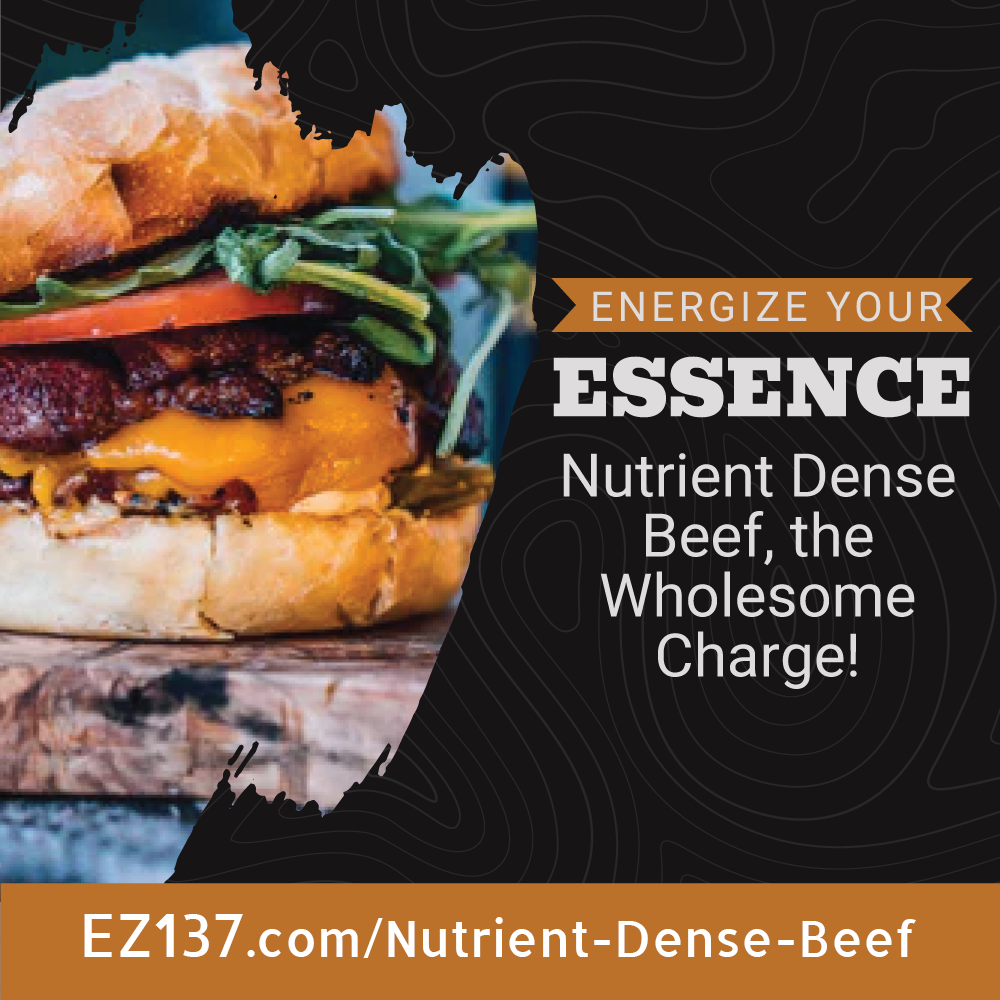Nutrient-dense beef, raised on the open range in Wyoming, represents a pinnacle of sustainable and high-quality meat production. The vast landscapes of Wyoming provide an ideal environment for cattle ranching. Which allows these animals to thrive on a natural diet of native grasses and vegetation. This only enhances the flavor and texture of the beef, which results in a product that is rich in essential nutrients.
One of the key factors contributing to the nutrient density of Wyoming’s open range beef. Is the absence of intensive confinement and reliance on grain based diets. Cattle are free to graze in open pastures, allowing them to naturally forage for a diverse range of nutrient rich plants. This varied diet contributes to a more complex flavor profile and ensures that the beef is packed with vitamins, minerals, and healthy fats.
Furthermore, the climate and geography of Wyoming play a vital role in the nutritional quality of the beef. The state’s elevation and clean air quality contribute to the development of lean, well-marbled meat. This lean-to-fat ratio is not only ideal for flavor but also promotes a healthy balance of Omega-3 and Omega-6 fatty acids. Making the beef a heart healthy choice.
Just a few Examples of: Open Range Fed Beef vs Grain Fed Beef
- Diet: Open Range (Grass-Fed): Cattle are raised on natural pastures and consume a diet primarily consisting of grass, forage, and sometimes legumes. They may also have access to some supplemental feed, but their primary source of nutrition is pasture. Grain-Fed: Grain-fed cattle are typically raised in feedlots and fed a diet rich in grains like corn, soy, and other grains. This diet is designed to fatten the cattle quickly, resulting in higher fat content and marbling in the meat.
- Flavor: Open Range (Grass-Fed): Grass-fed beef often has a more distinctive and earthy flavor. It can have a slightly gamier taste due to the varied diet of the cattle. The meat is leaner and can be slightly chewier. Grain-Fed: Grain-fed beef tends to have a milder and sweeter flavor. The high-carb diet produces more intramuscular fat, resulting in a tender and juicy texture. It’s often described as having a buttery or rich taste.
- Fat Content: Open Range (Grass-Fed): Grass-fed beef is typically leaner with lower overall fat content. It contains healthier fats like omega-3 fatty acids and lower levels of saturated fats. Grain-Fed: Grain-fed beef has a higher fat content due to the grain-rich diet. It tends to have more marbling, which adds to its tenderness and juiciness but also increases its saturated fat content.
Think about this for a minute..
- Nutritional Profile: Open Range (Grass-Fed): Grass-fed beef is known for being a good source of vitamins and minerals, including vitamin E, B-vitamins, and antioxidants. It also contains a healthier balance of omega-3 and omega-6 fatty acids. Grain-Fed: Grain-fed beef may have higher overall calorie content and saturated fat. It may contain fewer vitamins and minerals compared to grass-fed beef.
- Environmental Impact: Open Range (Grass-Fed): Grass-fed cattle may have a lower environmental impact as they primarily graze on natural pastures, reducing the need for intensive grain production. Grain-Fed: Raising grain-fed cattle in feedlots can have a higher environmental impact. Mainly due to the resource-intensive grain production, water use, and waste management associated with feedlot operations.
Ultimately, the choice between grass fed and grain fed beef depends on personal preference for flavor, texture, and nutritional priorities, as well as considerations of environmental sustainability. Both types of beef have their merits and are enjoyed by consumers for different reasons.
Order Now Nutrient Dense “The BEST BEEF” You have ever Tasted!!
In addition to being nutrient-dense, Wyoming’s open-range beef is often produced using sustainable and ethical practices. Many ranchers in the state prioritize animal welfare and environmental conservation, which further enhances the quality of the meat. The cattle are typically raised without the use of hormones or antibiotics, resulting in a cleaner and more natural product
Consumers seeking nutrient-dense beef should consider Wyoming’s open-range options as a premium choice. Not only is the flavor exceptional, but the meat is also a powerhouse of essential nutrients, thanks to the natural, free range lifestyle of the cattle and the pristine environment in which they are raised. Supporting this sustainable and nutritious source of beef not only benefits your health but also contributes to the preservation of Wyoming’s stunning landscapes and ranching traditions.
At our farm, we let our animals roam freely and graze on the native flora, contributing to our beef’s exceptional nutrient density. Once you have tasted it, you will never look at beef the same way again. Our mission is to make nutrient rich food accessible to everyone, and we are making progress one consumer at a time. We positively impact the world by emphasizing the importance of healthy and nourishing food. Join us on this journey to help make a change for the better.
All this Nutrient Dense Beef Talk is Making Me Hungry: How about you?
Now let’s enjoy a Big Juicy Steak with a Bottle of Ricord Merlot!! We are looking forward to pairing this beef with one of our Fine Wines. When you join our Wine Club, fine wines are delivered directly to your door every month!
Simply Go Here and Contact Us for Additional Information. Once we add you officially into our Online Community we get to “GIFT YOU” with more and more and more! See How to Contact Us Here:


